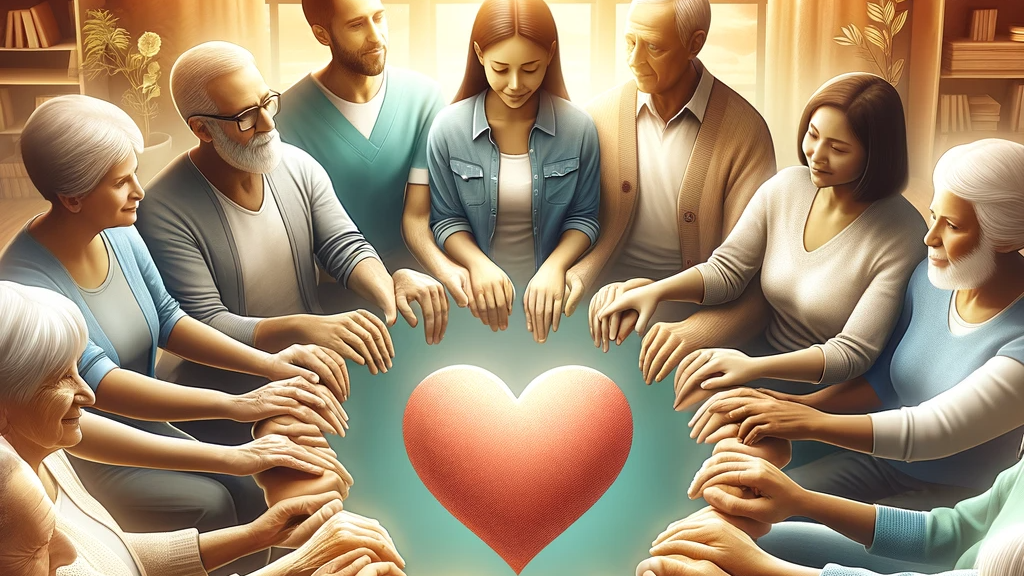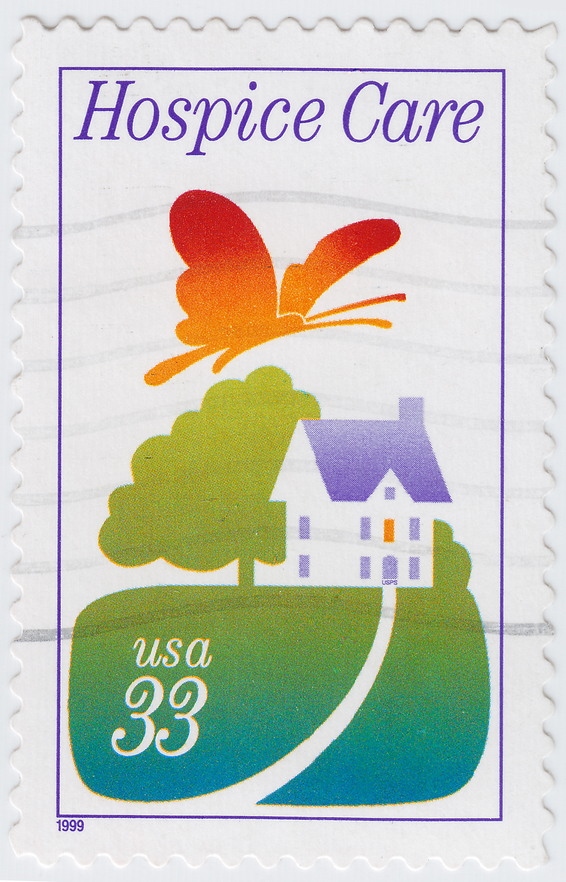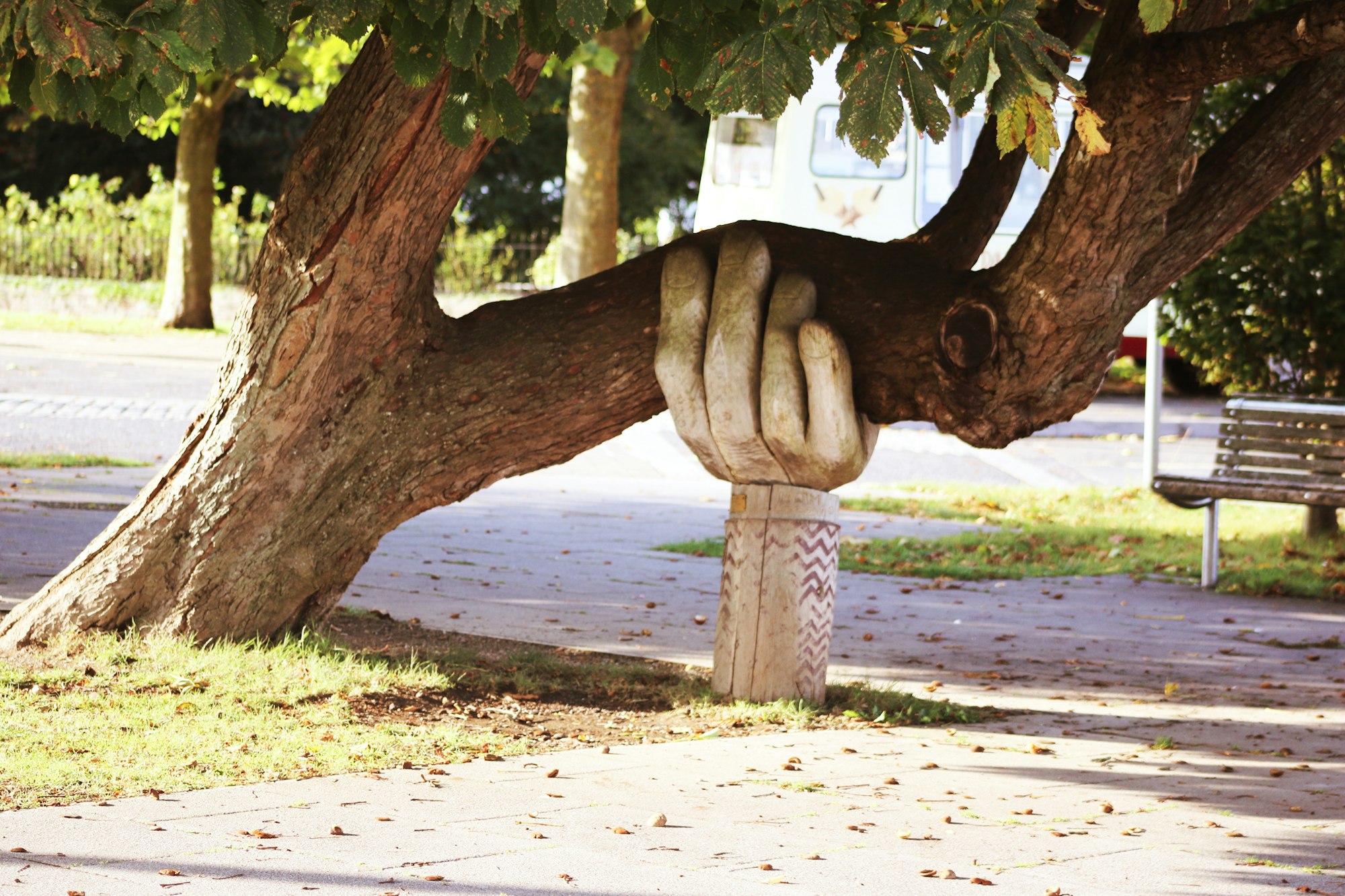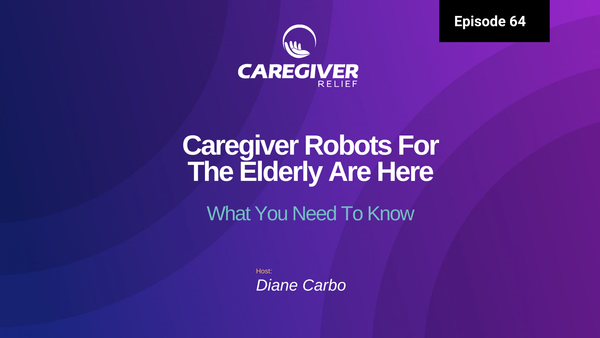Empowering Family Caregivers: Building Care Team Partner Support Groups for Enhanced Caregiving
Empowering Family Caregivers" delves into creating Care Team Partner Support Groups, offering vital resources for caregivers. It highlights the journey of caregiving, the importance of community support, and strategies for coping with the challenges of caring for loved ones.

In the intricate tapestry of life, the role of adult caregivers often remains hidden, yet it's pivotal in supporting the fabric of our society. These caregivers, particularly those caring for the elderly, embody the true essence of the act of caring. They tirelessly commit to supporting their loved ones, often at the cost of their own health and financial stability. This scenario underscores a public health crisis, calling for an urgent need to redefine caregiving and support these heroes.
Over two decades ago, I stepped into the realm of caregiving, combining my professional healthcare knowledge with personal experience as a family caregiver. I witnessed firsthand the toll of caregiving on individuals who often become homeless or impoverished post-caregiving. This alarming situation led me to launch www.caregiverrelief.com, a platform designed to alleviate the hardships faced by seniors and their caregivers.
The Journey of a Caregiver:
As you embark on this caregiving journey, it's essential to understand that you are not alone. Many have walked this path before you, and many more will follow. Caregiving is a journey that evolves over time, sometimes gradually, and at other times, it thrusts you into a whirlwind of responsibilities. It is a journey marked by the ebb and flow of life's unpredictable nature and it often necessitates a level of dedication that you not have anticipated.

Sharon's Story: A Sacrifice of Love and Survival
Sharon, a dedicated editor for a book company, had meticulously planned her life to extend well into her 70s. She had weathered the storms of life, serving as the primary caregiver for her husband until his untimely passing at a young age. As a single mother, she had faced the challenges of making ends meet while caring for her husband and young son. Sharon had finally reached a point in her life where the pieces were falling into place. She was making a comfortable living, her son had embarked on his own journey, and it was finally her time to shine.
However, Sharon's world was soon turned upside down when she began to notice the telltale signs of dementia in her beloved mother, Grace. The forgetfulness, missed appointments, and unpaid bills were just the beginning. Sharon knew it was time to confront the issue and seek medical advice. The diagnosis was heart-wrenching – Alzheimer's disease. To compound the difficulty, Grace was already in the middle stages of dementia, which meant that her care needs were substantial.
With a heavy heart, Sharon made the heartrending decision to take an early retirement and devote herself to providing the best possible care for her mother. She moved into her mother's home, leaving her rental behind, and was ready to face the challenging road ahead. It was only after moving in that Sharon discovered that her mother had taken out a second mortgage on the house. The mounting bills quickly consumed her mother's savings and began to deplete Sharon's modest retirement fund as well.
Amid the mounting challenges, Sharon found solace in a support group where she shared her situation. She was experiencing a whirlwind of emotions – fear, overwhelm, and a profound sense of isolation. As her mother's condition continued to deteriorate, the prospect of losing her was both heart-wrenching and terrifying.

In the midst of these emotional struggles, a suggestion was made for Sharon to consider palliative care or hospice to support her mother and herself during this painful journey. Sharon took the step of placing her mother in hospice care, hoping it would provide the comfort and support needed in the final stages of life. However, within a week of hospice care, Sharon felt a deep sense of unease and believed that hospice was hastening her mother's decline.
Facing the thought of losing her mother proved to be unbearable, and Sharon found herself at a crossroads. She made the difficult decision to have a feeding tube put in place, driven by a powerful need to hold onto her mother for as long as possible.
Tragically, the weight of Sharon's situation, compounded by the looming fear of homelessness, unemployment, and financial ruin after her mother's passing, took its toll. Sharon's health deteriorated rapidly, ultimately leading to a serious heart condition that claimed her life just a year after her mother's passing.
Sharon's story is, unfortunately, one that resonates with many family caregivers who shoulder the immense burden of caregiving. Chronic stress, social isolation, and a sense of helplessness can take a severe toll on both physical and emotional well-being. Sharon's story serves as a poignant reminder of the sacrifices made out of love and the dire need for support and resources for family caregivers who find themselves navigating the intricate and often overwhelming world of caregiving.
I learned very early on in my career as a nurse, that family caregivers make decisions based on emotions, not logic.

Why A Care Team Partner Support Group?
The growing aging population has escalated the demands on family caregivers, making it more challenging than ever before. My response to this crisis is the conception of Care Team Partner Support Groups. These groups aim to connect family caregivers, offering them much-needed support and resources, thus ensuring they are not left to shoulder the burden of caregiving alone.
This article is the first in many, as we beginning a journey towards changing the world for family caregivers. It delves into the principles of Care Team Partner Support Groups, offering guidance and inspiration for creating these lifelines. The objective is to acknowledge and empower family caregivers, ensuring they receive the support they deserve.
Discovering the Heart of Care Team Partner Support Groups:
"What is a Care Team Partner Support Group, and why do I need one?" This question is crucial in understanding the importance of these groups. Caregiving, often seen as intermittent acts of kindness, can unexpectedly evolve into a full-time responsibility. Many family caregivers don't initially identify as such, viewing their role more as a moral obligation than a defined caregiving position. This perspective, while noble, can lead to a lack of awareness about available resources and support, contributing to feelings of isolation and burnout.

In my experience, I've observed that decisions made by caregivers are often emotionally driven rather than logical. While emotions are a natural part of caregiving, relying solely on them can lead to subjective and inconsistent decision-making, potentially resulting in caregiver burnout. Care Team Partner Support Groups provide a balanced perspective, combining empathy with logic and experience, thereby enhancing the caregiving experience.
These groups serve as a beacon of hope and understanding, providing a platform where caregivers can share experiences and find support. They help in reducing the emotional and physical toll of caregiving and guide caregivers in making more informed decisions. The care team partners offer practical assistance to the care recipient and the primary caregiver.
The Power of Care Team Partner Support Groups:
Care Team Partner Support Groups are a source of strength, compassion, and unwavering support. They provide a safe space for caregivers to express their fears, frustrations, and triumphs. These groups are essential in preventing burnout, alleviating feelings of isolation, and offering insights into managing the complexities of caregiving.

The goal of this article, and the essence of my mission, is to promote the development of Care Team Partner Support Groups. These groups are crucial in providing education and practical support for the needs of family caregivers. Additionally, I urge the support of the Caregiver Relief Family Caregiver and Direct Care Worker petition, emphasizing the importance of building a solid network for caregiving support.
Together, we can create a brighter future for family caregivers, one Care Team Partner Support Group at a time, ensuring they receive the care, understanding, and compassion they need to navigate their challenging path.
Want to Learn More on building a care team partner support group? Check out our How to Become a Patient Care Advocate for your Family Caregiver
Please share stories about your caregiving journey to hep others know they are not alone.
You might also like this article:












